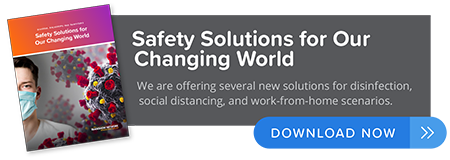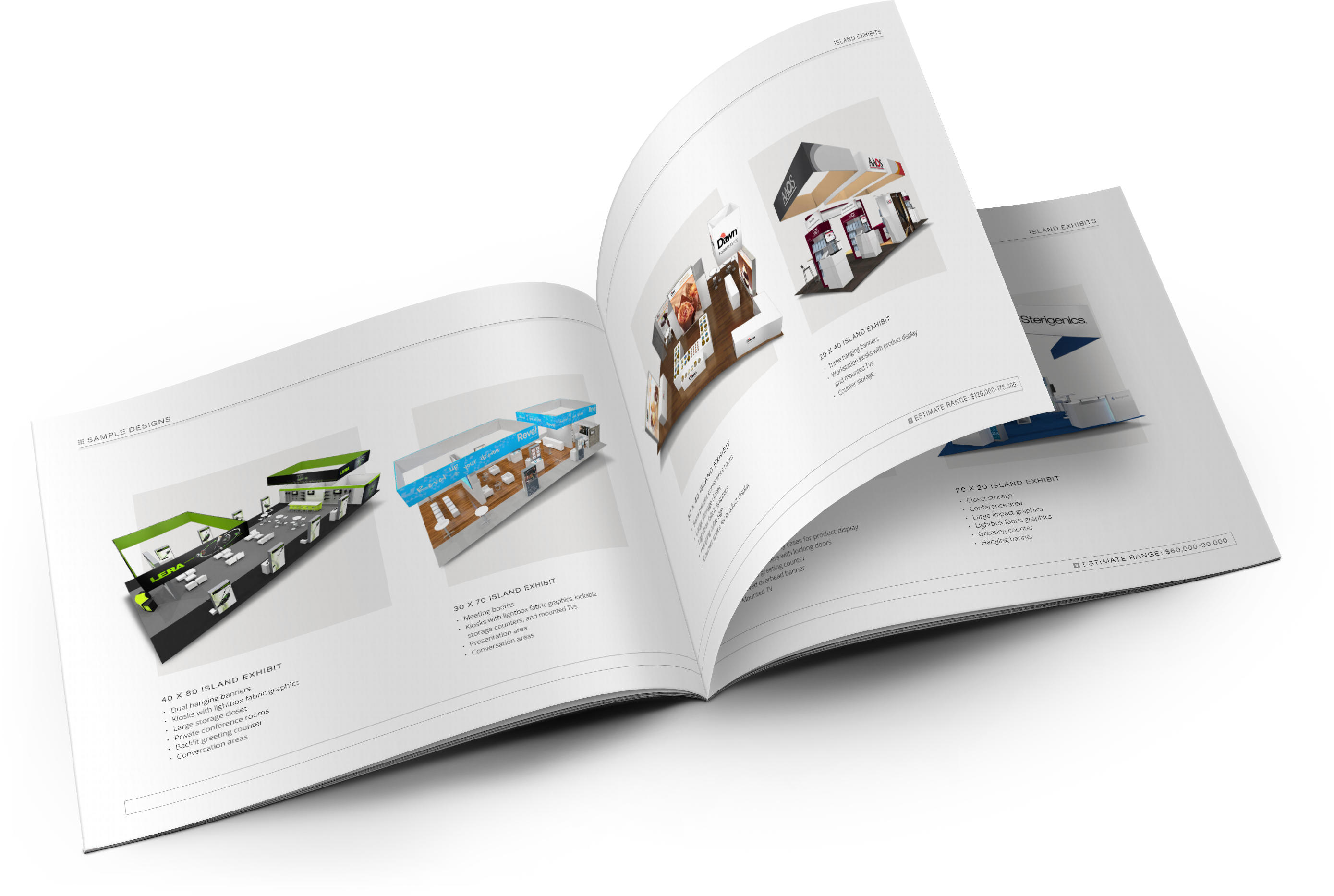Amid Delta Variant Uncertainty, New Research Reveals the Safety of In-person Business Events
As the Delta variant continues to cause some hesitancy about holding events, with a few shows cancelling and others taking place as planned, new research may hold the key to putting the industry’s mind at ease. According to findings from a research partnership between Freeman, a global leader in events, and Epistemix, a computational modeling software company, large in-person business events are safe and do not increase local COVID-19 case rates. “Based on the data we’ve seen, attending an in-person event is no riskier—in fact, less risky— than essential daily activities,” said Freeman CEO Bob Priest-Heck. He added, “Businesses and organizations want to get back to events for critical commerce, networking and exchange of ideas. This research provides the framework for doing so safely.”
Epistemix, a computational modeling software company that develops simulations to fight disease and inform public health policy, has developed an approach that enables it to model the risk of infection and subsequent impact on local hospitals due to in-person business events. The modeling represents more than two dozen cities and key event destinations with back-testing confirming its model forecasts.
“We recognize the current rise in Delta variant cases has led some event organizers and exhibitors to consider cancellations,” said John Cordier, CEO and co-founder of Epistemix. “Our modeling and data can help show organizers and public health officials replace that uncertainty with confidence to plan safe events.”
Following are key findings of the research:
- Risks of COVID-19 infection at events were as much as eight times less than the metro area where they were being held. For recent August events, the infection rates were as much as 95 percent lower than the U.S. at large.
- In-person business event participants are more likely to be vaccinated, reflecting a vaccination rate above 80 percent and creating vaccination coverage that drastically cuts transmission of COVID-19 at those events, regardless of the gathering size.
- Despite some concerns over the Delta variant, the majority of attendees and exhibitors want to return to in-person events, and more than 90 percent are not opposed to additional health and safety protocols to enable them to gather safely. Further, those who do not support additional protocols say they instead choose to stay home, mitigating any added risks of potential infections.
The research results come as many cities and states have implemented mask and vaccine mandates, while others consider increasing protocols, particularly since the FDA granted full approval Aug. 23 of the Pfizer-BioNTech’s coronavirus vaccine for people ages 16 and older.
New York City, San Francisco and New Orleans now require proof of vaccination to enter indoor establishments such as restaurants, bars, fitness centers and entertainment venues. San Jose, Calif., also implemented a vaccine mandate for city-owned buildings, including San Jose McEnery Convention Center, SAP Center and the Center for the Performing Arts.
Additionally, indoor mask mandates are currently enforced in California, Connecticut, District of Columbia, Hawaii, Illinois, Louisiana, Nevada, New Mexico, New York, Oregon, Puerto Rico and Washington.
With the latest CDC mask-wearing recommendation for vaccinated people indoors in areas of high transmission, the U.S. Travel Association recently doubled down on the safety of events, saying adhering to the new recommendations will allow people to safely return to their professional lives, including in-person meetings and events.
Although some events have been cancelled in the past month due to the Delta variant and rising COVID-19 case counts, others continue to be held safely and successfully.
The list of cancelled events that were set for August includes the New York International Auto Show at New York City’s Javits Center, the North American Association of Food Equipment Manufacturers (NAFEM) Show at Orlando’s Orange County Convention Center (OCCC) and the Association of periOperative Registered Nurses (AORN) Global Surgical Conference & Expo, also at the OCCC.
The Specialty Food Association's (SFA) also cancelled the in-person component of the Fancy Food Show 2021, which was scheduled for Sept. 27-29 at the Javits Center, but will run the digital component as planned Sept. 27-Oct. 8.
“In this environment, hosting any large-scale event is a challenge, but there continues to be a great demand for in-person meetings and events throughout the country,” said Tony Sclafani, senior vice president and chief communications officer at the recently expanded Javits Center.
He added, “Our first major event since the pandemic, NY NOW, [was held this month], and we are working closely with event organizers to host a series of upcoming events in the fall.”
Masks are required at the center, regardless of vaccination status, and several infectious disease prevention measures have been put in place, including HEPA filtration systems and becoming GBAC STAR-certified by the Global Biorisk Advisory Council to maintain strict cleaning and disinfection protocols.
In Orlando, which has been challenged with a high daily case rate, OCCC Executive Director Mark Tester said health and safety at the center are major priorities.
“We remain committed to the safety of our employees, clients, attendees and exhibitors and continue to adhere to the CDC’s guidelines and our comprehensive health and safety protocols in our Recovery and Resiliency Guidelines,” he said.
With its Recovery and Resiliency Guidelines, GBAC Star Reaccreditation, pioneering collaboration with Orlando Health and detailed planning efforts with each event, the OCCC implemented a unique model that officials said has been the key to hosting events safely in new era of health and safety protocols. Since July 2020, it has held more than 100 face-to-face events, and it has 52 events on the books through December 31.
Additionally, all OCCC employees are now required to be fully vaccinated by Sept. 30, unless otherwise exempt.
In other places around the country, trade shows, expos, conferences and other events are also taking place with appropriate health and safety measures.
Several major trade shows have even instituted vaccine mandates as an extra protocol, including CES 2022, the world’s most influential technology trade show, scheduled for Jan. 5-8 at the Las Vegas Convention Center. Others include HIMSS21, held Aug. 9-13 at Wynn Las Vegas, The Venetian Expo and Caesars Forum in Las Vegas; Reed Exhibitions’ Bar Convent Brooklyn, held Aug. 17-18 at the Brooklyn Expo Center and the National Growers Association (NGA) Show, scheduled for Sept. 19-21 at the Paris Hotel & Casino in Las Vegas. The NGA will also accept proof of a negative COVID-19 test taken no more than 72 hours before the show to enter.
Among the other major upcoming trade shows being held as planned are PackExpo, set for Sept. 27-29 at the Las Vegas Convention Center (LVCC); Specialty Equipment Market Association (SEMA) Show, scheduled for Nov. 2-5 at LVCC, and AAPEX for the automotive aftermarket, set for Nov. 2-4 at the Sands Expo and Caesars Forum in Las Vegas.
Guest Blogger: Lori Tenny is Editorial Director for TSNN. She is an award-winning editor, writer and strategist who has worked in publishing for more than 25 years, 16 of which have been spent covering the meetings and events industry. Contact her at ltenny@tsnn.com. https://www.tsnn.com/news/amid-delta-variant-uncertainty-new-research-reveals-safety-inperson-business-events






